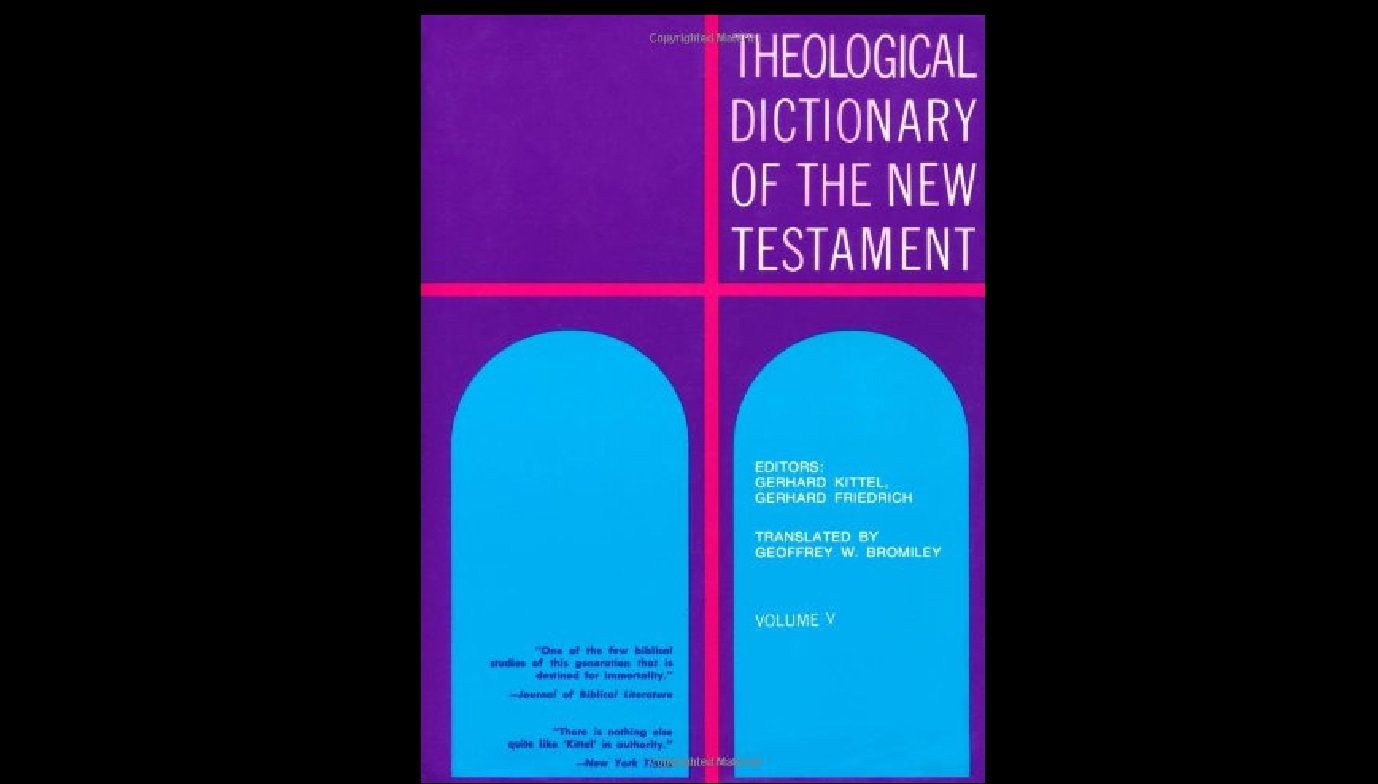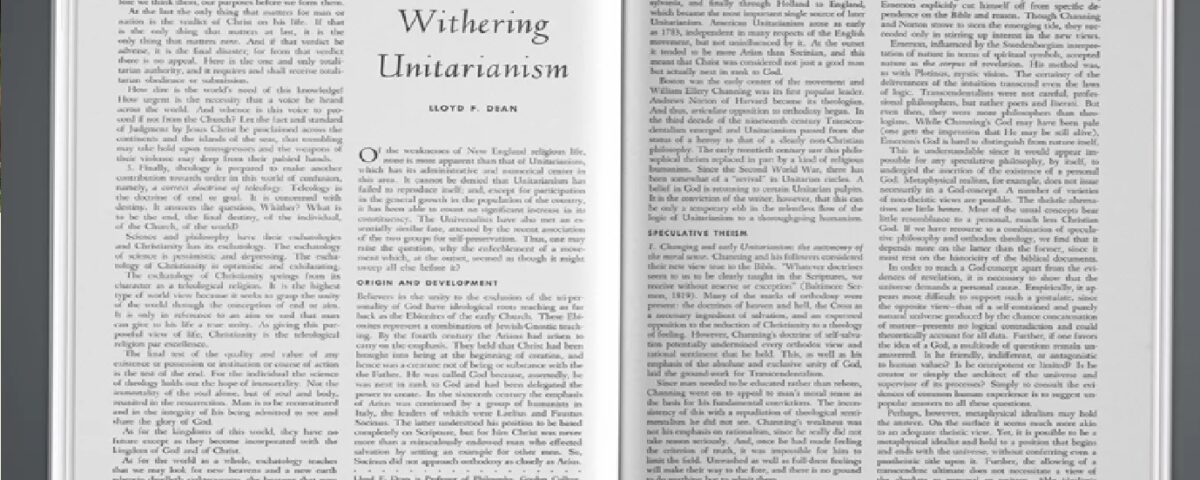
Biblical Agency
February 14, 2023
The servant of God: Philippians 2
February 14, 2023Withering Unitarianism

From Christianity Today, by L.F. Dean, Jan. 19, 1959
Origin And Development
Believers in the unity to the exclusion of the tri-personality of God have ideological roots reaching as far back as the Ebionites of the early Church. These Ebionites represent a combination of Jewish-Gnostic teaching. By the fourth century the Arians had arisen to carry on the emphasis. They held that Christ had been brought into being at the beginning of creation, and hence was a creature not of being or substance with the the Father. He was called God because, assertedly, he was next in rank to God and had been delegated the power to create. In the sixteenth century the emphasis of Arius was continued by a group of humanists in Italy, the leaders of which were Laelius and Faustus Socinus. The latter understood his position to be based completely on Scripture, but for him Christ was never more than a miraculously endowed man who effected salvation by setting an example for other men. So, Socinus did not approach orthodoxy as closely as Arius.
The movement spread from Italy to Poland, to Transylvania, and finally through Holland to England, which became the most important single source of later Unitarianism. American Unitarianism arose as early as 1783, independent in many respects of the English movement, but not uninfluenced by it. At the outset it tended to be more Arian than Socinian, and this meant that Christ was considered not just a good man but actually next in rank to God.
Boston was the early center of the movement and William Ellery Channing was its first popular leader. Andrews Norton of Harvard became its theologian. And thus, articulate opposition to orthodoxy began. In the third decade of the nineteenth century Transcendentalism emerged and Unitarianism passed from the status of a heresy to that of a clearly non-Christian philosophy. The early twentieth century saw this philosophical theism replaced in part by a kind of religious humanism. Since the Second World War, there has been somewhat of a “revival” in Unitarian circles. A belief in God is returning to certain Unitarian pulpits. It is the conviction of the writer, however, that this can be only a temporary ebb in the relentless flow of the logic of Unitarianism to a thoroughgoing humanism.
Speculative Theism
1. Changing and early Unitarianism: the autonomy of the moral sense. Channing and his followers considered their new view true to the Bible. “Whatever doctrines seem to us to be clearly taught in the Scriptures, we receive without reserve or exception” (Baltimore Sermon, 1819). Many of the marks of orthodoxy were present: the doctrines of heaven and hell, the Cross as a necessary ingredient of salvation, and an expressed opposition to the reduction of Christianity to a theology of feeling. However, Channing’s doctrine of self-salvation potentially undermined every orthodox view and rational sentiment that he held. This, as well as his emphasis of the absolute and exclusive unity of God, laid the ground-work for Transcendentalism.
Since man needed to be educated rather than reborn, Channing went on to appeal to man’s moral sense as the basis for his fundamental convictions. The inconsistency of this with a repudiation of theological sentimentalism he did not see. Channing’s weakness was not his emphasis on rationalism, since he really did not take reason seriously. And, once he had made feeling the criterion of truth, it was impossible for him to limit the field. Unwashed as well as full-dress feelings will make their way to the fore, and there is no ground to do anything but to admit them.
